Economy
FG services foreign debt with $3.5bn
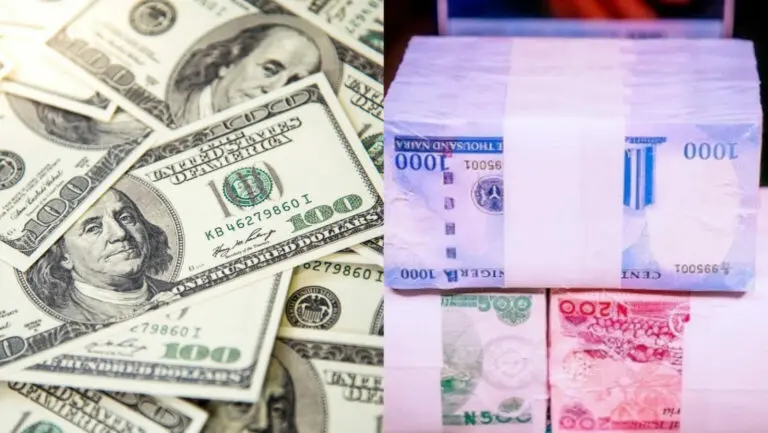
The Federal Government spent $3.58 billion servicing its foreign debt in the first nine months of 2024, representing a 39.77 per cent increase from the $2.56bn spent during the same period in 2023.
This is according to data from the Central Bank of Nigeria on international payment statistics.
The significant rise in external debt service payments shows the mounting pressure on Nigeria’s fiscal balance amid ongoing economic challenges.
Data from CBN’s international payment statistics reveal that the highest monthly debt servicing payment in 2024 occurred in May, amounting to $854.37m.
In comparison, the highest monthly expenditure in 2023 was $641.70m, recorded in July. The sharp contrast in May’s figures between the two years ($854.37m in 2024 versus $221.05m in 2023) highlights the rising cost of debt obligations, as Nigeria battles massive devaluation of the naira.
The CBN showed significant month-on-month changes in debt servicing costs, with some months recording sharp increases compared to the previous year. A breakdown of the data revealed varied trends across the nine months.
In January 2024, debt servicing costs surged by 398.89 per cent, rising to $560.52m from $112.35m in January 2023. February, however, saw a slight decline of 1.84 per cent, with payments reducing from $288.54m in 2023 to $283.22m in 2024.
March recorded a 31.04 per cent drop in payments, falling to $276.17m from $400.47m in the same period last year. April saw a significant rise of 131.77 per cent, with $215.20m paid in 2024 compared to $92.85m in 2023.
The highest debt servicing payment occurred in May 2024, when $854.37m was spent, reflecting a 286.52 per cent increase compared to $221.05m in May 2023. June, on the other hand, saw a 6.51 per cent decline, with $50.82m paid in 2024, down from $54.36m in 2023.
July 2024 recorded a 15.48 per cent reduction, with payments dropping to $542.50m from $641.70m in July 2023. In August, there was another decline of 9.69 per cent, as $279.95m was paid compared to $309.96m in 2023. However, September 2024 saw a 17.49 per cent increase, with payments rising to $515.81m from $439.06m in the same month last year.
The data raises concerns about the growing pressure of Nigeria’s foreign debt obligations, with rising global interest rates and exchange rate fluctuations contributing to higher costs.
The global credit ratings agency, Fitch, recently projected Nigeria’s external debt servicing will rise to $5.2bn next year.
This is despite the current administration’s insistence on focusing more on domestic borrowings from the capital market.
It also estimated that approximately 30 per cent of Nigeria’s external reserves are constituted by foreign exchange bank swaps.
Regarding external debt, the agency said external financing obligation
The Federal Government spent $3.58 billion servicing its foreign debt in the first nine months of 2024, representing a 39.77 per cent increase from the $2.56bn spent during the same period in 2023.
This is according to data from the Central Bank of Nigeria on international payment statistics.
The significant rise in external debt service payments shows the mounting pressure on Nigeria’s fiscal balance amid ongoing economic challenges.
Data from CBN’s international payment statistics reveal that the highest monthly debt servicing payment in 2024 occurred in May, amounting to $854.37m.
In comparison, the highest monthly expenditure in 2023 was $641.70m, recorded in July. The sharp contrast in May’s figures between the two years ($854.37m in 2024 versus $221.05m in 2023) highlights the rising cost of debt obligations, as Nigeria battles massive devaluation of the naira.
The CBN showed significant month-on-month changes in debt servicing costs, with some months recording sharp increases compared to the previous year. A breakdown of the data revealed varied trends across the nine months.
In January 2024, debt servicing costs surged by 398.89 per cent, rising to $560.52m from $112.35m in January 2023. February, however, saw a slight decline of 1.84 per cent, with payments reducing from $288.54m in 2023 to $283.22m in 2024.
March recorded a 31.04 per cent drop in payments, falling to $276.17m from $400.47m in the same period last year. April saw a significant rise of 131.77 per cent, with $215.20m paid in 2024 compared to $92.85m in 2023.
The highest debt servicing payment occurred in May 2024, when $854.37m was spent, reflecting a 286.52 per cent increase compared to $221.05m in May 2023. June, on the other hand, saw a 6.51 per cent decline, with $50.82m paid in 2024, down from $54.36m in 2023.
July 2024 recorded a 15.48 per cent reduction, with payments dropping to $542.50m from $641.70m in July 2023. In August, there was another decline of 9.69 per cent, as $279.95m was paid compared to $309.96m in 2023. However, September 2024 saw a 17.49 per cent increase, with payments rising to $515.81m from $439.06m in the same month last year.
The data raises concerns about the growing pressure of Nigeria’s foreign debt obligations, with rising global interest rates and exchange rate fluctuations contributing to higher costs.
The global credit ratings agency, Fitch, recently projected Nigeria’s external debt servicing will rise to $5.2bn next year.
This is despite the current administration’s insistence on focusing more on domestic borrowings from the capital market.
It also estimated that approximately 30 per cent of Nigeria’s external reserves are constituted by foreign exchange bank swaps.
Regarding external debt, the agency said external financing obligations through a combination of multilateral lending, syndicated loans, and potentially commercial borrowing will raise the servicing from $4.8bn in 2024 to $5.2bn in 2025.
The anticipated servicing includes $2.9bn of amortisations, including a $1.1bn Eurobond repayment due in November.
The Small and Medium Enterprises Development Agency and economists have stated that the rise in Nigeria’s public debt might create macroeconomic challenges, especially if the debt service burden continues to grow.
The Chief Executive Officer of the Centre for the Promotion of Public Enterprises, Dr Muda Yusuf, explained that the situation could lead to a vicious circle, warning that “we don’t end up in a debt trap.”
He said, “I think there is a need for us to be very conscious of and watch the rate of growth of our public debt. Because it could create macro-economic challenges especially if the burden of debt service continues to grow.”
He maintained that there is a need for the government to reduce the exposure to foreign debts because the number has grown so due to the exchange rate.s through a combination of multilateral lending, syndicated loans, and potentially commercial borrowing will raise the servicing from $4.8bn in 2024 to $5.2bn in 2025.
The anticipated servicing includes $2.9bn of amortisations, including a $1.1bn Eurobond repayment due in November.
The Small and Medium Enterprises Development Agency and economists have stated that the rise in Nigeria’s public debt might create macroeconomic challenges, especially if the debt service burden continues to grow.
The Chief Executive Officer of the Centre for the Promotion of Public Enterprises, Dr Muda Yusuf, explained that the situation could lead to a vicious circle, warning that “we don’t end up in a debt trap.”
He said, “I think there is a need for us to be very conscious of and watch the rate of growth of our public debt. Because it could create macro-economic challenges especially if the burden of debt service continues to grow.”
He maintained that there is a need for the government to reduce the exposure to foreign debts because the number has grown so due to the exchange rate.
Economy
Volvo announces termination of 800 U.S. workers, cites tariff, market decline

Volvo Group has announced plans to lay off up to 800 workers at three of its U.S. facilities over the next three months, citing ongoing market uncertainty and declining demand exacerbated by tariffs introduced under the administration of President Donald Trump.
The affected locations include the Mack Trucks plant in Macungie, Pennsylvania, as well as Volvo Group sites in Dublin, Virginia, and Hagerstown, Maryland.
In a statement on Friday, Volvo Group North America confirmed that between 550 and 800 employees would be impacted.
The company, a subsidiary of Sweden’s AB Volvo, employs nearly 20,000 people across North America.
The layoffs come amid wider turmoil in the automotive and manufacturing sectors, as shifting U.S. trade policy and a series of tariffs continue to drive up production costs. Economists have pointed to the uncertainty surrounding Trump’s trade strategy as a factor undermining both business and consumer confidence, with concerns mounting over a potential economic slowdown or recession.
According to Volvo, the company is grappling with a decline in heavy-duty truck orders, driven by instability in freight rates, anticipated regulatory changes, and the growing financial burden of tariffs. “We regret having to take this action, but we need to align production with reduced demand for our vehicles,” a company spokesperson stated in an email quoted by Reuters.
Volvo’s announcement marks another blow to an industry already navigating a complex web of supply chain challenges and fluctuating market conditions, with other manufacturers also warning of potential cost hikes and disruptions tied to global trade disputes.
Economy
Inflation surged to 24.23% due to escalating cost of living
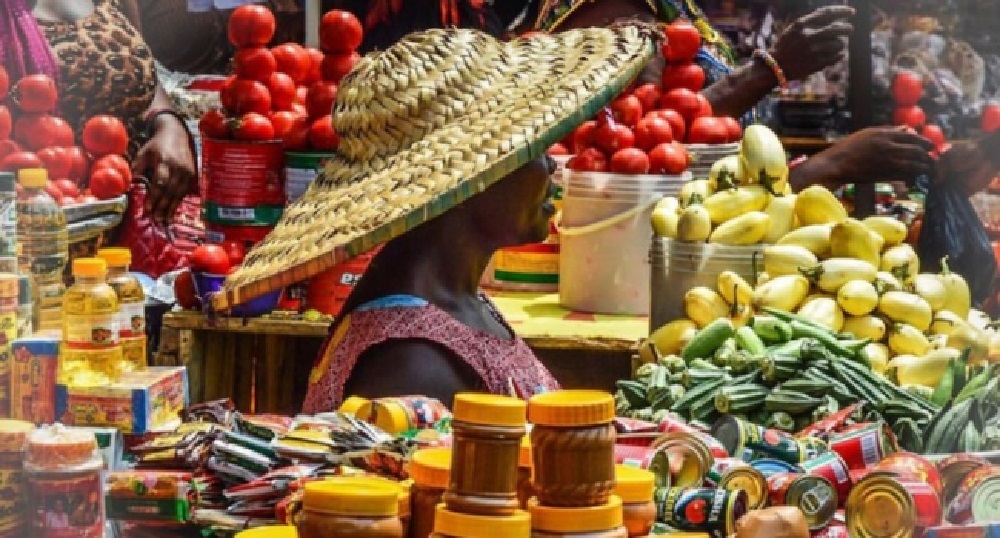
Inflationary pressure has reappeared as Nigerians grapple with increases in average costs of basic food items and energy.
For the first time after the rebasing of the Consumer Price Index (CPI), headline inflation spiked in March to 24.23 per cent – 105 basis points above the 23.18 per cent recorded in the previous month.
The National Bureau of Statistics (NBS) yesterday indicated that the rate of increase in the average price level was higher in March than the level in February.
In January, the NBS updated the weight and price reference periods in calculation of the CPI to make the inflationary gauge more reflective of changes in consumption patterns and the economy generally.
The rebasing did not only brought the base year closer to the current period from 2009 to 2024, it also introduced some critical methodology changes to improve the computation processes.
After the rebasing, inflation dropped from 34.80 per cent in the pre-rebased period of December 2024 to 24.48 per cent in January 2025. It dropped further to 23.18 per cent in February.
In its latest report, NBS recorded 186 basis points changes between the monthly inflation rate, with the month-on-month rate rising from 2.04 per cent in February to 3.90 per cent in March.
The NBS attributed the spike to the rise in costs of food and alcoholic beverages, fuels and electricity, among other items.
Analysts at CardinalStone said the resurgence was due to renewed foreign exchange (forex) pressures amid heightened global risk-off sentiment.
They pointed at foreign portfolio investments (FPIs) outflows and increased dollar demand, which saw naira dropping by 2.4 per cent in March.
Experts also cited increase in price of Premium Motor Spirit (PMS) or petrol, following the temporary suspension of the naira-for-crude swap arrangement.
Food inflation rate stood at 21.79 per cent in March 2025. The composite food index decreased to 21.79 per cent from 23.51 per cent.
Core inflation, which excludes volatile agricultural produce prices and energy, rose to 24.43 per cent from 23.01 per cent.
Specifically, the month-on-month food inflation rose by 50 basis points from 1.67 per cent in February to 2.18 per cent in March.
The NBS attributed the increase in food inflation to increases in the average prices of basic food items including ginger, garri, broken rice, honey, crabs, potatoes, plantain flour, periwinkle and pepper amongst others.
On a state-by-state basis, food inflation was higher in Oyo with 34.41 per cent; Kaduna (31.14 per cent) and Kebbi (30.85 per cent).
On the other side, the 9.61 per cent recorded by Bayelsa; Adamawa (12.41 per cent) and Akwa Ibom (12.60 per cent), were the lowest inflation rates.
Analysts expressed concerns that the resurgent inflationary pressure might lead to renewed tightening stance by the Central Bank of Nigeria (CBN).
CBN Governor Dr. Olayemi Cardoso, had at the end of the first Monetary Policy Committee (MPC) meeting in 2025, reiterated the apex bank’s commitment to orthodox monetary policies, noting that the apex bank’s stance will be reflective of the inflationary trend.
With inflation rate dropping in February, the MPC had decided to maintain all key monetary policy parameters, including the Monetary Policy Rate (MPR) at 27.50 per cent, the asymmetric corridor around the MPR at +500/-100 basis points, the Cash Reserve Ratio (CRR) at 50.00 per cent for Deposit Money Banks and 16.00 per cent for Merchant Banks, and the Liquidity Ratio at 30.00 per cent.
Clarifying the impact of the rebased CPI, Cardoso had explained that the lower inflation figure should not be misinterpreted.
He underlined the need to analyse more data before drawing comparisons, noting that the CBN is currently assessing the figures and will provide further guidance in due course.
The CBN boss stressed the critical importance of collaboration between monetary and fiscal authorities in sustaining recent economic improvements.
Addressing concerns about the impact of elevated borrowing costs on economic growth, the CBN governor assured that the apex bank’s primary objective is to stabilize the foreign exchange and financial markets.
He expressed confidence that such stability would attract increased foreign investments, stimulating the much-needed economic growth.
Cardoso also highlighted the competitiveness of the Nigerian currency, which has spurred growing interest from international investors.
Economy
SEE Current Black Market Dollar (USD) To Naira (NGN) Exchange Rate

The exchange rate between the US dollar and the Nigerian naira continues to draw significant attention from individuals and businesses alike, especially those involved in international trade and remittances.
On Saturday, April 12, 2025, activity in the Lagos parallel market, commonly known as the black market shows that the buying rate for one US dollar stands at ₦1570, while the selling rate is ₦1575.
These figures are sourced from traders and Bureau De Change (BDC) operators who are active in key currency exchange hubs across Lagos.
Why the Black Market Rate Matters
Although the Central Bank of Nigeria (CBN) does not officially recognize or support the use of the black market for foreign exchange transactions, many Nigerians still rely on it due to difficulties in accessing forex through official banking channels. Issues such as limited availability, long processing times, and strict documentation requirements have made the black market a more accessible, albeit riskier, alternative.
CBN’s Official Position
The CBN continues to warn against participating in parallel market trading, stating that such activities undermine the stability of the national currency. The apex bank urges those in need of foreign currency to apply through authorized financial institutions, which are mandated to follow official exchange rates.
Nonetheless, the disparity between the official and unofficial markets persists, often influenced by market forces such as demand, inflation, and fluctuations in Nigeria’s foreign reserves.
Latest Exchange Rates Overview
Black Market (Parallel Market) Rate
Currency Pair Buying Rate Selling Rate
USD/NGN ₦1570 ₦1575
CBN Official Rate
Currency Pair Highest Rate Lowest Rate
USD/NGN ₦1630 ₦1570
Key Notes for Forex Users
The exchange rates in the black market often differ slightly from one location or dealer to another due to market volatility and negotiation margins.
Rates can also fluctuate within hours based on economic news, government policies, and global financial trends.
It is advisable to compare rates from multiple sources before conducting any large transactions, especially in volatile markets.
What This Means for Nigerians
The current forex rates reflect continued pressure on the naira, and many analysts believe that inflation, reduced oil revenue, and inconsistent monetary policies are key factors driving the demand for the dollar. For everyday Nigerians, this means the cost of imported goods remains high, and businesses dependent on international suppliers face growing challenges.
Until forex supply stabilizes through official channels, the black market will likely remain a major player in Nigeria’s currency landscape.
-
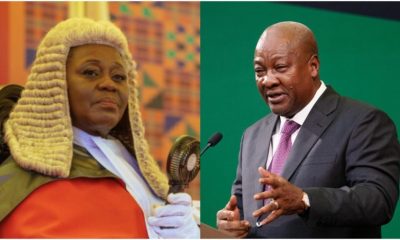
 News23 hours ago
News23 hours agoPresident suspends supreme court chief justice over misconduct
-
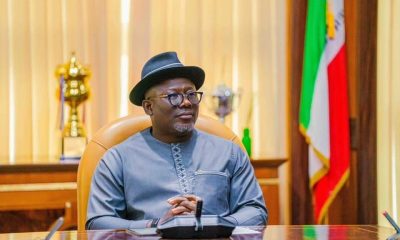
 News13 hours ago
News13 hours agoBREAKING! Gov Oborevwori finally dumps PDP
-

 News23 hours ago
News23 hours agoFinland Grants Extradition of Simon Ekpa to Nigeria on Terrorism Allegations
-
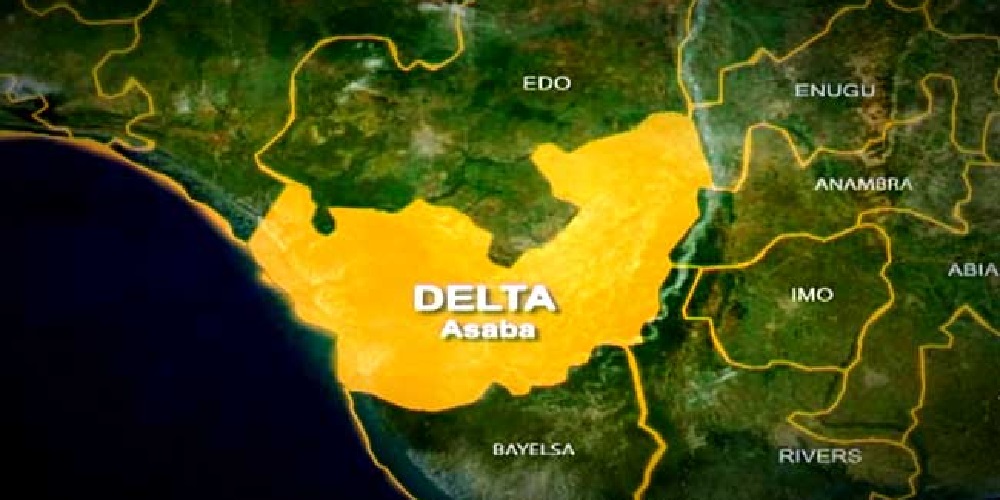
 Metro23 hours ago
Metro23 hours agoFemale Police Officer Assaulted By Lover Of Retired ASP
-

 News15 hours ago
News15 hours ago18 Africans among cardinals to elect new Pope
-

 News15 hours ago
News15 hours agoLagos school owner nabbed for concealing r3pe of eleven girls by teacher
-

 News9 hours ago
News9 hours agoDelta to transform into complete APC state as 25 PDP Local Government Chairmen set to defect
-

 News15 hours ago
News15 hours agoPilgrims Arrive As Lying In State Begins for Pope Francis





